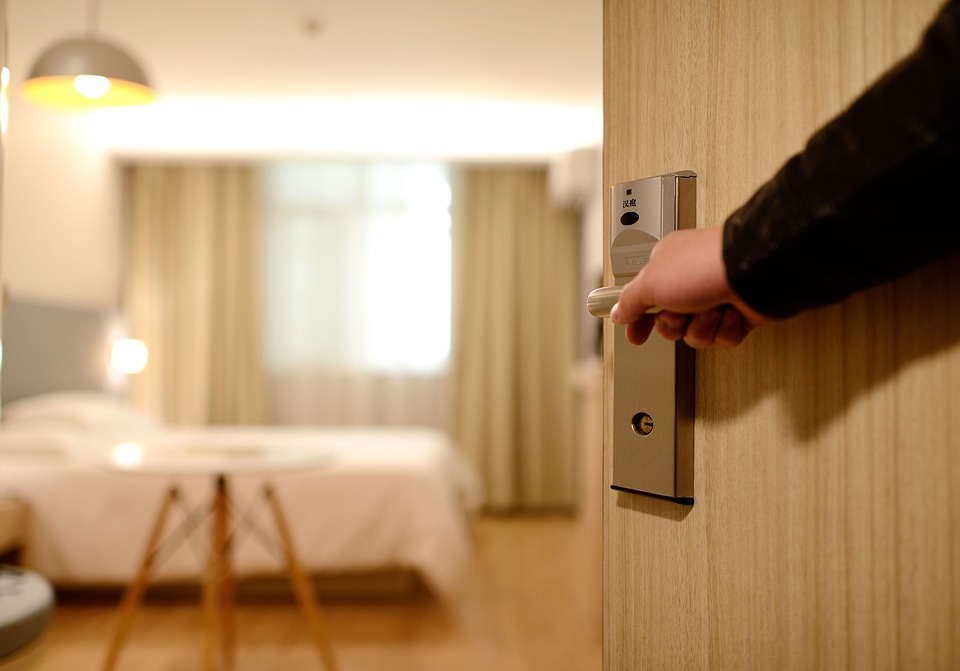Hotel occupancy tax is filling funding vacancies for municipalities
Guests who pay to stay in lodging are providing cities with funding that is supposed to help increase and maintain tourism. According to the Texas Comptroller of Public Accounts, the state’s HOT tax has been around since 1959, when the Texas Legislature enacted a 3 percent hotel occupancy tax. Today, the occupancy tax ranges from 6 to 17.5 percent, depending on where you choose to rest your head. In Texas, a room costing at least $15 per night is subject to a 6 percent state tax. In 2013, the Legislature established a maximum cap of 17 percent for all state and local HOT taxes. El Paso’s local taxes, however, were put in place before the Legislature established the combined cap. Its city and venue taxes total 9 percent combined, on top of a 2.5 percent county tax and the 6 percent state tax, for a total of 17.5 percent.
In fiscal 2015, Texas collected almost $526 million in state hotel occupancy taxes. The state’s General Revenue Fund receives nearly 92 percent of this revenue with the remainder allocated to a state Economic Development Account that supports the tourism advertising and marketing activities of the Texas Governor’s Economic Development and Tourism office.
Over the years, the Legislature has authorized municipalities to collect HOT taxes and began permitting counties to levy their own HOT taxes. Cities and counties can establish up to a 2 percent HOT tax to support sports and community venues. Amendments to state law have permitted temporary state tax rebates to fund convention centers and related hotel facilities. In 2015, the Legislature amended the law to allow state tax rebates to several cities including El Paso, Frisco, Nacogdoches, Odessa, Round Rock and Tyler to repay bond debt for a hotel project built within 1,000 feet of a convention facility.
 Depending on where you stay in Texas the taxes can vary as well as what that tax is used for. Some cities use their taxes for beach clean-up, for the operation of a community pool, to support debt services on bonds to expand and improve a convention center and more. The 85th Legislative Session ended with some approved bills that are adding extra uses for the Texas Hotel Occupancy Tax.
Depending on where you stay in Texas the taxes can vary as well as what that tax is used for. Some cities use their taxes for beach clean-up, for the operation of a community pool, to support debt services on bonds to expand and improve a convention center and more. The 85th Legislative Session ended with some approved bills that are adding extra uses for the Texas Hotel Occupancy Tax.
Texas Rep. Richard Peña Raymond recently announced the passage of House Bill 2445, which he co-authored. The bill allows cities to keep some of the hotel-motel revenue that would otherwise go to the state. Laredo plans to receive a portion of the state’s sales tax revenue to fund a convention center. The city can use these funds, amounting to $400,000 per year for over a 10-year period. The city can begin collecting these funds as soon as they’re ready to begin construction. In February, Laredo City Council voted to enter into negotiations with the owners of La Posada to build the convention center behind the hotel, along the Rio Grande. To pay for the convention center, the city will use funds from the sale of the Civic Center, the city’s revenue from the hotel occupancy tax, and revenue from HB 2445. The city will go out for a bond for this project, but will use these three funding sources rather than raise property taxes. Laredo Independent School District bought the Civic Center from the city for $16 million in 2013.
The Kemah City Council voted last week to seek out a developer and operator to build and manage its proposed convention center complex. The council also voted to retain a Houston law firm to draft a request for qualifications to be sent to developers experienced in managing similar-sized projects and, eventually, a memorandum of understanding with the successful bidder.
HB 2445, will allow Kemah to pledge tax revenue for the repayment of obligations related to hotel and convention center projects. Kemah City Council moved forward on the development of a hotel conference center and plan to take action to make the city eligible under recently-approved state legislation for additional sales tax and hotel occupancy tax revenues in the area surrounding the future convention center for a period of ten years.
HB 2445 also allows the city of Denton to spend some of its HOT money to upgrade city ballfields. In Denton, visitors would pay $13 on a $100 room for hotel occupancy tax. The tax is then divided with the state collecting $6 and Denton receiving $7. About half of the $2 million Denton collects each year in hotel occupancy taxes goes to the Denton Convention & Visitors Bureau. The city also uses its HOT fund to help pay for big community festivals that attract out-of-towners. Cities are required to use the money on existing municipal fields, such as baseball, softball, soccer and flag football fields. To be eligible, the ballfields must have been used more than 10 times for district, state, regional or national sports tournaments the year before. The city must also show the investment contributed directly to new hotel business with the first five years of making improvements.
Following the passage of Senate Bill 2166, the city of Shenandoah now has the option of paying for its proposed special events center with hotel occupancy tax revenue. Shenandoah city officials have been discussing the possibility of building a multi-use special events center within the city limits since 2011. Last year the city submitted proposed special legislation that would allow them to build a special events center that could be used to accommodate large-scale events such as conferences and sporting events. The special legislation was required to amend Chapter 351 of the Tax Code which did not allow municipalities the right to use HOT taxes to construct a sports-related component. If built, city officials want to fund the $20 million-$40 million center with hotel tax revenue. Shenandoah officials hope to have a plan for the center in place by 2019, so the next steps for the city involves getting a cost estimate on the center and conducting feasibility and economic effects studies to evaluate whether the center would be a good financial decision.
SB 2166 now gives any city under 6,500 with at least 800 hotel rooms and which is located adjacent to a county with over 3 million residents the authority to use HOT funds for a center which will promote tourism and the convention and hotel industry.
Senate Bill 1136 is another way municipalities are using the HOT funds for sports-related projects. SB 1136 will allow the city of Edinburg to use HOT revenue to pay for the construction, maintenance and expansion of sporting-related facilities surrounding a newly-built 9,000-seat soccer arena.
The city has 10 years to ensure the tax revenue on the sports facility or sports related field is less than the revenues of the area hotels attributable to sporting or other events held at the facility of field. If not, the city will reimburse the municipal HOT revenue fund from the city’s general fund.
Strategic Partnerships, Inc. (SPI) is leading the way in the rapidly expanding area of public-private partnerships. Learn about SPI’s service offerings in both the public and private sectors by contacting them today.

 512-531-3900
512-531-3900 Request More Info
Request More Info